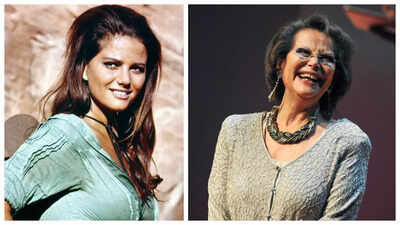Claudia Cardinale, the iconic 1960s film star known for her beauty and talent, passed away Tuesday in Nemours, France. Born in Tunisia on April 15, 1938, she appeared in nearly 130 films, from Fellini’s 8½ to Blake Edwards’ The Pink Panther.
Passed away peacefully at home
Cardinale’s passing was confirmed by her agent, Laurent Savry, who said she died peacefully at her Nemours home, which she shared with filmmaker Pasquale Squitieri, from natural causes. The legendary star had largely stayed away from the spotlight since 2022, following complications from a 2019 hip surgery. Le Monde noted she had “faded gracefully,” with no prolonged illness, and in line with French privacy laws, no further medical details were released.Cardinale was discovered at 18 through a beauty contest organized by the Italian embassy, quickly making waves and earning a trip to the Venice Film Festival. Her poise and charm instantly marked her as a rising star. She later told the Wall Street Journal, “In Tunis, like most women, I wore bikini tops. That’s what I wore in Venice. People looked at me as though I had come from another planet.”
Breakthrough roles in European cinema
Cardinale’s breakthrough came with Luchino Visconti’s Rocco and His Brothers (1960) and The Leopard (1963), where she played a smart, seductive commoner alongside Burt Lancaster and Alain Delon. In Sergio Leone’s Once Upon a Time in the West (1968), she took on the rare role of a widowed homesteader defending her land. She later told the Daily Telegraph, “In Leone’s westerns, the woman usually had a limited space—but in this film, everything revolved around her.”She also starred in Cartouche alongside Jean-Paul Belmondo and shared the screen with Hollywood icons like John Wayne, Tony Curtis, and Peter Sellers. Still, she largely declined American studio offers, favoring richer, more complex roles in European cinema. Her performance in Werner Herzog’s Fitzcarraldo (1982) as a brothel madam navigating the Amazon remains legendary, with Cardinale describing it as “the best adventure of my life.”
Personal struggles and advocacy
Off-screen, Cardinale endured major personal challenges. After a traumatic assault in Tunisia, she gave birth to her son Patrick, keeping him away from the public eye. Early in her career, producer Franco Cristaldi, who discovered her, exerted strict control over her life. Later, she found independence in Paris, continued acting in prominent European films, and used her platform to advocate for women’s rights and environmental causes through her foundation.Cardinale’s legacy is defined by resilience, talent, and lasting influence. As she told The Guardian: “You can live many lives, instead of one. I think I’ve been lucky.” While cinema has lost a rare star, her work will continue to inspire generations.In her later years, Ms. Cardinale lived with her son and daughter in Nemours, where she established a foundation in her name that supports the arts that give attention to women and the environment. Go to Source




